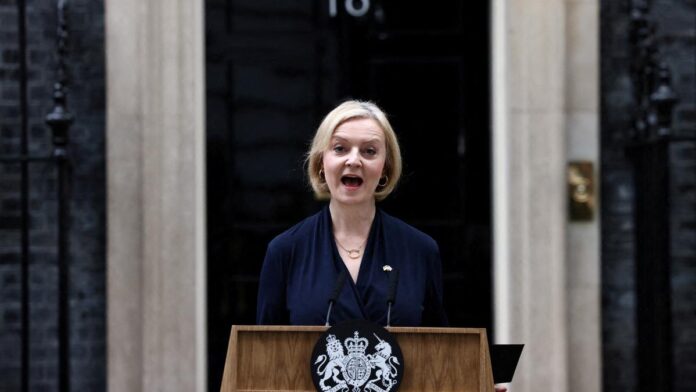Liz Truss, ex- prime minister of the United Kingdom, launched a warning shot against the economic conservatism of British and global bodies on Sunday. She primarily blamed “a very powerful financial formation” and an absence of political support for her government’s collapse and her resignation from office in less than 50 days.
The International Monetary Fund (IMF) and U.S. President Joe Biden, among others, made “concerted” efforts in Washington to oppose Ms. Truss’ strategies, according to Ms. Truss, who wrote an essay about her “painful” experience in the Sunday Telegraph newspaper. She also claimed that U.K. Treasury officials had misinformed her with imperfect data and that the journalism had made her administration a scapegoat.
Following her “mini Budget” of unsustainable spending and tax reductions on September 23, which shook the economy and caused Ms. Truss’s administration to fall, she resigned in October of the previous year. On Sunday, she maintained her positions while acknowledging that some of her actions may have been improved.
Regarding the repeal of the corporate tax increase, she expressed her steadfast belief that boosting the rate is counterproductive and referred to the elimination of the top rate of income tax of 45 percent as a “modest step.”
The ex-prime minister criticised the economic modelling techniques used by the U.K.’s fiscal regulatory body, which she claimed underpriced supply-side reforms and lowered taxes, and claimed that large segments of the press and the general public had grown unaware of tax and economic policy arguments. The attitude had also “shifted leftward” over time.
The IMF’s response to Ms. Truss’ budget, according to Ms. Truss, “remarked on redistributive factors rather than economic stability, which it is difficult to conclude was anything other than politically driven.”
The tax cuts were singled out by U.S. President Joe Biden, who called the budget a “mistake.”
Ms. Truss said, “After Queen Elizabeth’s funeral, she probably shouldn’t have travelled to New York (to attend the United Nations General Assembly) and instead should have stayed in London to more carefully monitor the budget presentation.”






















